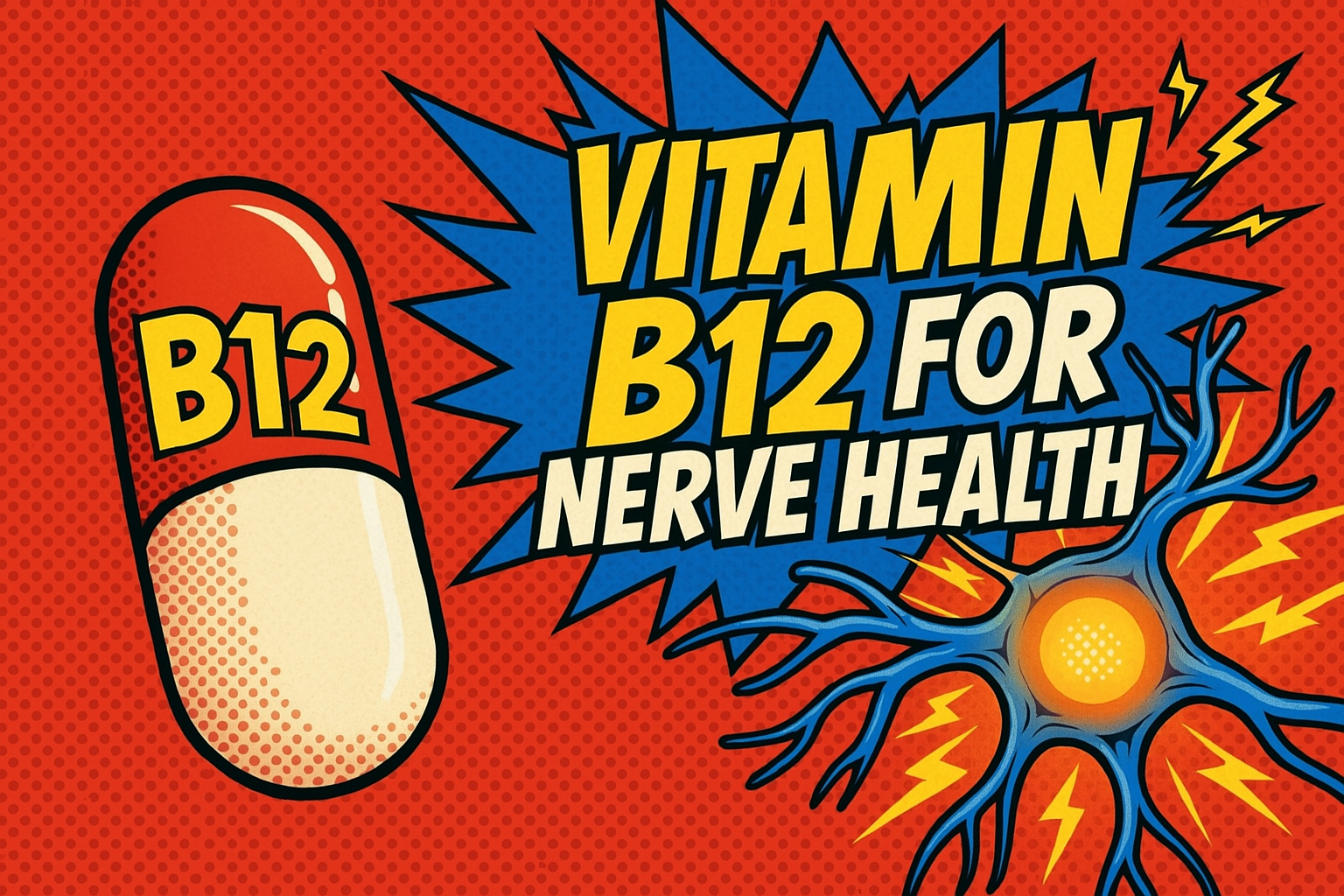If you’ve ever searched for ways to help with neuropathy or nerve pain, you’ve probably come across vitamin B12. But what’s the real story — and how much do you actually need? Here’s a clear, practical guide in list form to help you navigate the B12 conversation.
1. B12 Keeps Your Nerves Healthy
Vitamin B12 helps build and maintain the myelin sheath, the protective layer around your nerves. Without enough B12, nerve signals slow down or misfire — leading to symptoms like tingling, numbness, burning, and weakness. Severe B12 deficiency can even cause permanent nerve damage.
2. Most People Need Only Small Amounts — But Not Everyone
The average adult needs around 2.4 micrograms (mcg) per day, easily met by eating foods like meat, eggs, fish, and dairy. But if you have neuropathy or a B12 deficiency, the story changes dramatically.
People with diabetes, older adults, vegans, or those on medications like metformin often need much higher doses because their bodies can’t absorb B12 properly from food.
3. Neuropathy Patients Often Take High Doses
For neuropathy, doctors may recommend doses like:
- 500 mcg to 1,000 mcg daily (oral or sublingual)
- 1,000 mcg injections weekly or monthly, depending on severity
These high doses help restore depleted B12 stores and support nerve repair. Always check with your doctor before starting.
4. There Are Different B12 Forms — and Some May Work Better
The two most common forms are:
- Cyanocobalamin: Synthetic, widely used, affordable.
- Methylcobalamin: A natural, active form that may be better absorbed by nerve tissue.
Many neuropathy patients and doctors lean toward methylcobalamin, especially in doses of 1,000 to 5,000 mcg per day, because it’s thought to support nerve regeneration more effectively.
5. More Is Not Always Better
Because B12 is water-soluble, your body flushes out extra amounts in urine — which makes toxicity very rare. But megadosing without a clear need can be wasteful and may sometimes cause minor side effects like skin rashes or diarrhea.
The smart approach: test, don’t guess. Ask your doctor for a B12 blood test to know where you stand.
6. Injections Can Help When Absorption Is Poor
People with severe B12 deficiency, digestive conditions, or a history of gastric surgery may need B12 shots. These bypass the gut and deliver the vitamin directly into your bloodstream — often providing faster relief of nerve symptoms.
7. B12 Is Only One Part of the Puzzle
While B12 can help neuropathy, it’s usually not a magic bullet. A complete nerve health plan may include:
- Blood sugar control (for diabetics)
- Physical therapy or gentle exercise
- Pain management strategies
- Other supplements like alpha-lipoic acid or acetyl-L-carnitine
Final Takeaway
Vitamin B12 can make a big difference for people with neuropathy, but dosing isn’t one-size-fits-all. By working with your doctor, you can figure out the right form and amount for your body — and avoid wasting money or missing out on potential benefits.
Research Papers
- Vitamin B12 Supplementation in Diabetic Neuropathy
- Metformin-induced vitamin B12 deficiency can cause or worsen distal symmetrical, autonomic and cardiac neuropathy in the patient with diabetes
- Vitamin B12 Deficiency: Common Questions and Answers
- Parkinson’s disease and vitamins: a focus on vitamin B12
- Vitamin B12 status and peripheral neuropathy in patients with type 2 diabetes mellitus


Leave a Reply
You must be logged in to post a comment.